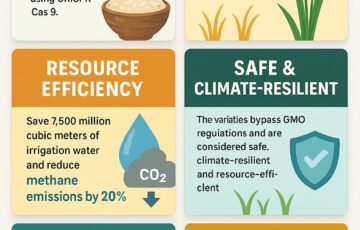India and US Enhance Critical Mineral Supply Chains
Why in the news?
India and the US signed an agreement to strengthen critical mineral supply chains amid concerns over China’s control and recent export restrictions affecting cleantech industries.
Agreement Details:
- Context: Amid rising concerns over China’s control of critical minerals, particularly in clean tech, India and the US signed an agreement to enhance the critical mineral supply chain.
- Signatories: The agreement was signed by India’s Minister of Commerce and Industry, Piyush Goyal, and US Secretary of Commerce, Gina Raimondo.
- Objective: The MoU aims to leverage the strengths of both countries to enhance resilience in the critical minerals sector.
Implications and Challenges:
- US Recommendations: The US suggested that India expand and protect its clean energy manufacturing, with India’s Production Linked Incentive (PLI) schemes investing over $4.5 billion in clean energy.
- Market Dynamics: The Economic Survey 2023-24 noted China’s expanding manufacturing surplus, while India faces challenges from Chinese actions restricting access to solar equipment.
- Protection Measures: India reinstated the Approved List of Models and Manufacturers order to protect domestic solar photovoltaic module manufacturing against cheaper imported Chinese modules.
What are Critical Minerals?
- Definition: Essential for economic development and national security; their scarcity can disrupt supply chains.
Critical Minerals in India:
- Ilmenite: India holds 11% of global deposits, key for titanium dioxide.
- Lithium: Reserves in Jammu and Kashmir estimated at 9 million tonnes.
- Nickel: Odisha Block has 3,908 tonnes of nickel metal content (2.05 million tonnes of nickel ore).
- Graphite: Substantial reserves in Madhya Pradesh, Jharkhand, and Odisha; potential global player.
- Other Minerals:
- Phosphorite and rare earth elements in Karnataka.
- Potash and halite in Rajasthan.
- Tungsten in Tamil Nadu.
- Cobalt and manganese in Karnataka’s Shimoga.
- Chromium and nickel in Maharashtra’s Sindhudurg
Initiatives for Critical Minerals:
- Partnerships:
- India-Australia Critical Minerals Investment Partnership.
- Membership in the Minerals Security Partnership (MSP) led by the US.
- Khanij Bidesh India Ltd. (KABIL): Identifying and acquiring overseas mineral assets (e.g., lithium brine in Argentina).
- Legislative Support: Mines and Minerals (Development and Regulation) Amendment Act, 2023, allowing auction of critical mineral areas.
Significance of Critical Minerals:
- Economic Growth:
- Key for telecommunications and electric vehicle batteries.
- Lithium demand rose 30% in 2023; nickel, cobalt, and rare earth elements grew 8-15%.
- Overall mineral value pegged at $325 billion.
- Clean Energy:
- Rare Earth Elements vital for semiconductors, solar panels, and wind turbines.
- Demand projections by 2040:
- Copper: +50%
- Nickel, cobalt, and rare earth elements: ×2
- Graphite: ×4
- Lithium: ×8 (essential for batteries).
- Environmental Goals: Meeting net zero emissions targets necessitates rapid growth in critical mineral demand.
Sources Referred:
PIB, The Hindu, Indian Express, Hindustan Times






